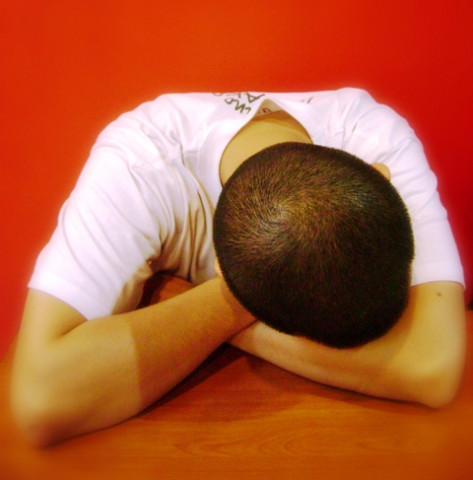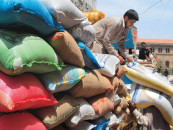World Sleep Day: If you are snoring, you might have sleep apnea
‘About 45 per cent of world’s population suffers from sleep disorders’.

12.4% of the 137 people tested by the Aga Khan Medical Hospital were found to be at a high risk of developing sleep apnea.
For three months, Faisal, 14, sis felt dizzy, had high blood pressure and difficulty breathing.
A month ago, he was diagnosed with obstructive sleep apnea, a sleep disorder in which a person’s breathing is interrupted during sleep and might result in not enough oxygen being supplied to the brain and other body parts.
His father Muhammad Munir was advised by doctors at the Services Hospital to admit Faisal to the hospital’s Sleep Laboratory – one of the two such facilities in Pakistan. The teenager was put on a CPAP (continuous positive airway pressure) machine, which helped him breathe consistently during sleep. The doctors advised that the young boy, who has elephantiasis, to eat boiled vegetables and eliminate fat from his diet since obesity makes snoring worse. “A good diet has also contributed to his improvement,” says Munir. Now, Faisal visits the hospital every fortnight, is able to breathe better and has a snore-free sleep.
Munir shared his son’s story at a seminar organised in connection with the World Sleep Day observed on March 21 at the Services Hospital. The theme for 2013 is Good Sleep, Healthy Aging.
At the event, doctors and a representative of the Pakistan Sleep Research Foundation discussed causes of sleep disorders and diseases that result from shortage or excess of sleep.
Among them was Dr Kamran K Chima, who said that about 45 per cent of world’s population suffers from sleep disorders and that as many as 80 diseases are a result of sleep disorders.
Dr Chima explained that sleep apnea is characterised by abnormal pauses in breathing. The pauses can last from at least 10 seconds to minutes, and may occur 5 to 30 times or more in an hour, according to the National Heart, Lung, and Blood Institute website.
Dr Chima said if a person pauses more than five times during an hour, it indicates sleep apnea. He talked about the diseases and health problems that can result from sleep apnea: heart attack and failure, an uneven heart beat, high blood pressure, impotency in men, psychological disorders like anxiety and depression, paralysis and poor sugar control.
Asad S Jafar, the Philips CEO, also addressed the seminar. The company provided the CPAP machine at the Services Hospital sleep lab. Jafar said that about two thirds of apnea patients remain undiagnosed worldwide. In Pakistan, there are only four to five physicians trained in detecting this disorder, he said, while only one technician knows how to operate the machines. “Lack of knowledge about sleep has led to a crisis situation across the world. The US estimates the cost of sleep deprivation at one billion dollars a year. This can not be taken lightly,” said Jafar.
He quoted a research carried out by the Aga Khan Medical Hospital in Karachi, titled Risk for Sleep Apnea syndrome for Pakistan, according to which about 12.4 per cent of the 137 people tested were at a high risk of sleep apnea.
According to the Web MD website, male, overweight, over 40 people with a large neck size (17 inches or greater in men and 16 inches or greater in women), large tonsils, gastroesophageal reflux or nasal obstruction due to a deviated septum, allergies, or sinus problems are at a greater risk of developing sleep apnea.
Nadira Amir of the Pakistan Sleep Research Foundation said that her foundation had conducted many researches on sleep deprivation across Pakistan. She also talked about the benefits of timely sleeping. It has a vital role to play in our perceptions, emotional processes, immune system, good memory and making good decisions, she said.
Published in The Express Tribune, March 22nd, 2013.



















COMMENTS
Comments are moderated and generally will be posted if they are on-topic and not abusive.
For more information, please see our Comments FAQ